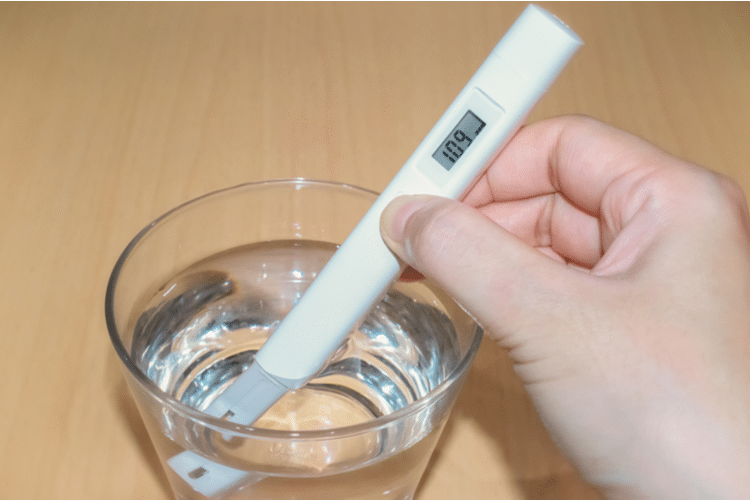Natural freshwater contains dissolved minerals, salts, and metals. The amount of total dissolved solids (TDS) in water varies depending on the geological makeup of the waterbed and contamination from human factors.
The reverse osmosis process filters out these minerals and salts in water, providing what is known as low TDS water. But, does this type of filtered water have side effects?
Let’s dig in!
What is TDS?
Total dissolved solids or TDS refers to the ratio of dissolved salts and minerals in the water, including but not limited to sodium, magnesium, fluoride, chloride, nitrate, potassium, manganese, iron, nickel, calcium, chromium, copper, zinc, arsenic, cadmium, and sulfates.

The TDS levels in water are measured in mg/L or PPM (Parts Per Million). According to water scientists, acceptable TDS levels in drinking water should be around 300 ppm, and TDS levels over 600 ppm show poor water quality.
While certain regions have access to naturally low TDS water, homes with reverse osmosis filters installed get completely purified water that contains minimal TDS.
Here’s a comparison chart showing acceptable TDS levels in water:
| TDS Level | Water Quality |
|---|---|
| 0 – 250 ppm | Low; Lacks minerals like Sodium, Calcium, Magnesium, etc. |
| 300 – 500 ppm | Ideal for drinking |
| 600 – 900 ppm | Not great; Might contain harmful contaminants |
| 1000 – 2000 ppm | Bad; Polluted might have an unpleasant smell |
| >2000 ppm | Unacceptable |
Possible Side Effects of Drinking Low TDS Water
Low TDS water can lead to a 20% reduction in sodium and magnesium consumption. Studies show that magnesium minerals in drinking water help support our cardiovascular systems and provide other health benefits.
Thus, it has been suggested that drinking and cooking with low TDS water can have a negative impact on your health.
According to the World Health Organization, drinking water should contain 100 mg/L of TDS at the very minimum. Optimum levels are between 200-500 mg/L.
Further research shows that 20-30 mg/L of magnesium and 40-80 mg/L of calcium in water are optimum levels for human health.
Last but not least, low TDS water tastes a bit acidic, and it can affect the taste of food and beverages made with water.
What You Can Do To Improve Low TDS Water?
Fortunately, there are many re-mineralization filters you can use to counter the possible health effects of low TDS water. One good example is the Aquasana Optim H20 reverse osmosis system.
If you already have an RO system, you don’t have to replace it since you can buy re-mineralization tablets like the ones sold by WaterandWellness
These tablets add healthy minerals to the water, reducing its acidity and improving the taste. You will enjoy the health benefits and the improved taste of your food and beverages.
Conclusion
Low TDS water can lead to calcium and magnesium deficiencies. It’s also slightly acidic and can affect the taste of food and beverages.
If you’re using a reverse osmosis system to filter drinking water, you might want to get re-mineralization tablets to add these healthy minerals back to your water and improve its taste and nutritional qualities.
Your explanations for TDS are lucid and easy to understand.
Please add on such reviews about other essential parts of drinking water such as ammonia, chlorine, etc. It would help a lot